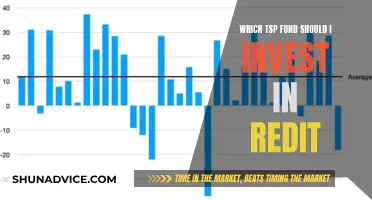
Investing in mutual funds is a popular choice for investors due to the wide range of products based on varied investment requirements. However, investors need to be cautious of the schemes they are picking. New fund offers (NFOs) are generally introduced when the markets are doing well, and investors are often attracted to them because they come cheaper and are believed to offer better returns than existing funds. While NFOs can offer a unique opportunity to invest in a new category, sector, or geography, there are certain risks and expenses associated with them that investors must consider before investing.
| Characteristics | Values |
|---|---|
| Why invest in new mutual funds? | Diversification and investment in emerging markets and European markets |
| To take advantage of growth potential in certain sectors/categories | |
| To invest in new-age technology and disruptive themes with significant potential for growth | |
| Risks | Exposure to regulatory, geopolitical, and currency risk |
| No guaranteed returns | |
| May be riskier for investors with a low-risk appetite | |
| May be costlier than existing funds due to heavy expenses incurred by fund houses in promotion and marketing | |
| No detailed track record to rely on | |
| Advantages | Competitive terms to attract new investors |
| Can respond to the most immediate opportunities prevailing in the market |
What You'll Learn

New fund offers (NFOs) vs existing funds
New Fund Offers (NFOs) are introduced when markets are performing well and aim to attract investors by offering lower prices. NFOs can be open-ended or closed-ended. Open-ended funds do not limit the number of shares available for purchase, while closed-ended funds only issue a set number of shares.
NFOs can be an exciting opportunity to diversify your portfolio and gain exposure to unique investment opportunities or specialised sectors not available in existing mutual funds. They are also a way to invest in a new fund at a lower cost, which may lead to substantial capital gains when the fund starts trading.
However, NFOs come with certain risks. They often have a higher expense ratio than existing funds, and there is no track record of success (or failure). It is challenging to predict a new fund's performance, and the lack of a historical record means you are taking a leap of faith with the fund manager's strategy.
Experts suggest that investors should ideally invest in existing schemes with proven track records. However, if an NFO invests in a new category, sector, or geography, it may be worth considering.
Before investing in an NFO, look at the unique investment style and theme offered by the fund house. Analyse your risk profile and liquidity needs, and ensure that the NFO aligns with your investment goals.
What Makes Debentures Attractive for Surplus Fund Investments?
You may want to see also

The risks of investing in an NFO
New Fund Offers (NFOs) are typically introduced when markets are performing well. They attract investors with the promise of unique opportunities and potentially high returns. However, investing in an NFO also has its risks.
Firstly, NFOs lack a historical track record, making it challenging for investors to analyse past performance and gauge how the fund will behave in different market conditions. This uncertainty of performance is a significant drawback, as investors face a higher level of risk due to the lack of a proven track record.
Secondly, NFOs often have limited information available during the subscription period. Investors may find it difficult to assess the fund's potential based on the details provided in the offer document. The NFO offer letter does not provide specific details, and investors may be left guessing about the stocks to be purchased by the fund.
Thirdly, NFO units cannot be traded on the stock exchange until the fund is officially launched and listed, resulting in a lack of immediate liquidity. This may be a disadvantage for investors who require the flexibility to buy and sell units on the stock exchange.
Additionally, there is a possibility of overpricing during the NFO subscription period. Investors purchase units at face value, but once the NFO is listed, market forces determine the unit price, which may be higher than the intrinsic value of the assets.
Lastly, NFOs may not offer any meaningful differentiation from existing funds. Due to the wide variety of funds available, it is rare to find an NFO whose strategy or approach is not already covered by an established fund.
In conclusion, while NFOs can provide investors with the opportunity to be part of a new and potentially lucrative investment strategy, it is crucial to carefully consider the risks involved. These include the lack of a track record, uncertain performance, limited information, lack of immediate liquidity, possibility of overpricing, and lack of meaningful differentiation. Investors should conduct thorough research, understand the fund's investment objective, and evaluate the fund manager's expertise before making any investment decisions.
Strategies for Investing Endowment Funds: A Comprehensive Guide
You may want to see also

The potential benefits of investing in an NFO
Investing in a New Fund Offer (NFO) can be a great opportunity to diversify your portfolio and gain exposure to new markets, sectors, and asset classes. Here are some potential benefits of investing in an NFO:
Investment in New Strategies:
Close-ended funds offered by NFOs provide investors with an opportunity to invest in new and innovative strategies that existing open-ended funds may not offer. This allows investors to explore different investment approaches and potentially enhance their portfolio's performance.
Great Flexibility:
Close-ended NFOs offer flexibility in deciding when to invest your money in the market. Even if the NFO is launched when the market is at its peak, the fund manager can hold on to a portion of your funds and invest them at a later time when market conditions are more favourable. This helps to mitigate the risks associated with market volatility.
No Large Flows:
Unlike open-ended funds, investors in close-ended NFOs are locked in for the tenure of the fund. This means that the fund manager can focus on proper stock selection and tracking without worrying about frequent redemptions or inflows of new investments. This lock-in period can also help investors stick to their investment plans and avoid making impulsive decisions.
Lock-in Support:
Close-ended NFOs typically have a lock-in period of 3-4 years, which can benefit investors by encouraging them to stay invested for a more extended period. Many investors tend to exit the market prematurely, impairing their potential returns. The lock-in period provided by close-ended NFOs helps investors stay committed to their investment goals.
Stability:
Close-ended NFOs offer stability to mutual fund managers as they do not have to worry about frequent redemptions or bulk withdrawals. This allows fund managers to make more informed investment decisions without being swayed by short-term market volatility, potentially resulting in higher profits for investors.
Agility:
When investing in an open-ended fund, your funds are typically invested in the market immediately, regardless of market conditions. However, with close-ended NFOs, the fund manager has more flexibility to hold on to the funds until market conditions become more favourable. This agility can help protect your investment from potential downturns or market corrections.
Avoid Wild Swings:
During periods of high market volatility or negative sentiment, many investors may rush to sell their stock and mutual fund holdings. This can put pressure on fund managers to sell their holdings to meet redemption requests, even if they believe the market will eventually recover. Investing in close-ended NFOs helps avoid such wild swings and allows fund managers to make more strategic investment decisions.
While investing in an NFO can offer these potential benefits, it is essential to remember that NFOs are new to the market and may not have a proven track record. Therefore, investors should carefully consider their investment goals, risk tolerance, and the fund's objectives before deciding to invest in an NFO.
Unlocking Dimensional Fund Advisors: A Guide to Smart Investing
You may want to see also

How to choose between an NFO and an existing fund
When deciding between investing in a New Fund Offer (NFO) and an existing fund, there are several factors to consider. Here are some key points to help you make an informed decision:
Understanding NFOs and Existing Funds:
Firstly, it is important to understand the nature of NFOs and existing funds. An NFO is similar to an Initial Public Offering (IPO) in the equity market, where a mutual fund company, or an Asset Management Company (AMC), issues fresh fund units for the first time or raises funds for a new theme. NFOs are typically launched when the markets are doing well, and they are often priced at a fixed rate of ₹10, which is known as the Net Asset Value (NAV). On the other hand, existing funds have a track record of performance, and investors can evaluate their past returns, portfolio composition, and volatility.
Advantages of NFOs:
NFOs may offer unique investment opportunities by providing access to new sectors, categories, or geographies that are not available in existing funds. They can be attractive to investors who want to capitalise on emerging trends or specific investment themes. NFOs may also offer competitive terms to attract new investors, such as lower initial investment costs compared to existing funds.
Disadvantages of NFOs:
One of the main disadvantages of NFOs is the lack of a track record. It is challenging to predict how an NFO will perform over time, as investors have limited information to rely on, such as the scheme's offer letter. NFOs also carry the risk of being costlier than existing funds due to the heavy expenses incurred during their launch, including marketing and distribution costs. These costs are ultimately passed on to the investors. Additionally, there is no guarantee that NFOs will generate better returns than existing funds. The idea that NFOs are cheaper or will offer higher returns is a common misconception.
Factors to Consider:
When choosing between an NFO and an existing fund, consider the following:
- Investment Objectives: Evaluate your investment goals and risk tolerance. If you are seeking a unique investment opportunity that aligns with your goals and is not available in existing funds, an NFO may be worth considering.
- Track Record: Existing funds provide a track record of performance, allowing you to assess their past returns, volatility, and portfolio composition. This information can help you make a more informed decision about whether the fund aligns with your investment objectives.
- Costs and Expenses: Compare the costs and expenses associated with the NFO and existing funds. NFOs may have higher upfront costs due to marketing and distribution expenses, which can impact your overall returns.
- Due Diligence: Conduct thorough research before investing in any fund. Review the fund's investment strategy, the fund manager's track record, and the performance of other schemes offered by the fund house.
- Long-Term Performance: Remember that investing is a long-term commitment. Avoid making investment decisions based solely on short-term market fluctuations. Focus on the fund's potential for generating returns over the long term.
In conclusion, the choice between investing in an NFO or an existing fund depends on your specific investment objectives, risk tolerance, and the unique characteristics of the fund. While NFOs may offer access to new investment opportunities, they also carry the risk of unknown performance and potentially higher costs. Existing funds provide a track record of performance, allowing for a more informed investment decision. Conduct thorough research, consider your investment goals, and seek advice from financial advisors to make a decision that aligns with your financial plan.
A Guide to Investing in Zack's Mutual Fund
You may want to see also

The importance of consulting a financial advisor before investing
Investing in mutual funds is a popular choice for investors due to the wide range of products available that cater to varied investment requirements. However, it is important to be aware of the potential pitfalls and risks involved when investing in mutual funds. One of the most significant mistakes that investors make is not consulting a financial advisor before investing.
Financial advisors play a crucial role in helping investors make informed and strategic decisions about their investments. They provide expert knowledge and guidance that can help investors navigate the complex world of mutual funds and avoid costly mistakes. By assessing an individual's financial situation, goals, and risk tolerance, advisors can tailor their recommendations accordingly. This personalised advice ensures that investors make decisions that align with their unique circumstances, minimising potential risks and maximising returns.
For example, when considering investing in new mutual funds, a financial advisor can help evaluate whether these funds align with an investor's portfolio and overall strategy. As new funds are introduced to capitalise on emerging markets, exotic funds, or new technologies, it is important to assess whether they fit an investor's needs. A financial advisor can provide valuable insights into the risks and potential rewards of these new opportunities and help determine if they are a suitable addition to an investor's portfolio.
Additionally, financial advisors can offer guidance on the timing of investments. They can help investors understand the impact of market highs and lows on their investments and advise on the optimal time to enter or exit the market. This is especially important when considering new fund offers (NFOs), which are often introduced during surging markets to attract more investors. A financial advisor can help assess whether an NFO is a sustainable investment option or merely a short-term trend.
Furthermore, financial advisors provide ongoing support and guidance throughout an investor's journey. Investing is not a one-time activity, and as circumstances change, investment strategies may need adjustments. A financial advisor can help monitor and review an investor's portfolio, ensuring that it remains aligned with their goals and risk tolerance over time. This ongoing support helps investors make wise decisions and take advantage of new opportunities as they arise.
In conclusion, consulting a financial advisor before investing in mutual funds is of utmost importance. Their expertise and guidance can help investors navigate the complexities of the investment landscape, avoid costly mistakes, and make informed decisions that are tailored to their unique circumstances. By seeking professional advice, investors can be confident that their investment strategies are well-informed, strategic, and aligned with their financial goals.
Monitoring Your Investment Funds: Strategies for Success
You may want to see also
Frequently asked questions
New mutual funds can offer investors a chance to diversify their portfolio and invest in emerging markets and sectors, such as international funds or new technologies. They can also be attractive to investors because they are often cheaper than existing funds and there is a perception that they may offer better returns in the long run.
The performance of new mutual funds is difficult to predict as they don't have a track record. They are also often sold rather than bought, with investors attracted by the marketing of new funds, and can be more expensive due to the costs of promotion and marketing.
Investors should consider whether the fund fits with their risk and return appetite, and whether it offers a new category or sector that doesn't already exist in their portfolio. It is also important to remember that past performance does not guarantee future results.
It is important to do your due diligence before investing in any fund, including researching the fund's prior performance and the asset mix of the fund. It is also crucial to remember that investing in mutual funds carries risks and there are no guaranteed returns.







